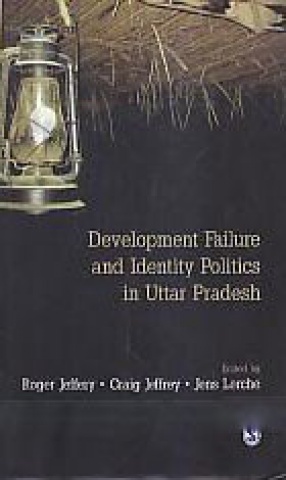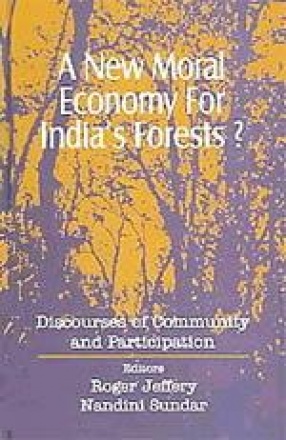
Roger Jeffery

Showing all 7 books


A brilliant analysis of the socio-political processes that help us understand the challenges faced by marginalized populations for representation and recognition in India.
The premise of democratic politics is that all citizens are equal and have an equal right to a say in national politics. This definition of democracy, however, is observed far more in the breach than in practice. Muslims, Dalits and Adivasis continue their struggle to seek entry into the ...

The work presents an in-depth understanding of failures in the course of development and identity politics in the state of Uttar Pradesh. It delves into neo-liberal change and political transformation in India’s largest and poorest state of UP, probing the association between transitions in the contemporary economy of India and the nature of political transformations. Concerned with, broadly, issues of the state, the civil society, democracy and social ...

The book begins with a comprehensive introduction by the editors which focuses on the concept of 'community participation' in forest conservation. They argue that a 'new moral economy' is in the process of being evolved. In recognising the legitimacy of 'local' involvement, JFM policies and strategies tend to impose new, limited rights and understand customary claims selectively due to distorted notions of who constitutes a 'community' and why, and what ...

This book is a collaborative review of the Joint Forest Management (JFM) programme in India, which is a relatively recent attempt to make forest policy socially responsible. It is a scholarly yet refreshingly analytical study of the origins, regional variations, and shortcomings of various JFM projects. The book is a rare combination of extensive field study, social science insights and policy studies. It shows that far from being a simple, unified programme, JFM ...

The State of Uttar Pradesh – India’s most populous, but also one of its poorest – is in crisis, logging behind the rest of the country in terms of social development, economic growth, and women’s empowerment, with inefficient and ineffective democratic institutions. In this timely book established scholars and new voices from Europe reflect on aspects of the perilous condition of UP, address in a range of issues, all drawing on intensive and extended ...

Drawing on over 20 years of field-level research in rural Uttar Pradesh, these essays challenge Hindutva myths about Muslims in India. Communalist discourses often portray Muslims as 'backward' because of Purdah, polygamy, illiteracy, high fertility and low women's status. The authors highlight the falsity and perniciousness of such negative stereotypes. Pointing to the danger of reifying and rigidifying these contrasts between Hindus and Muslims, they draw out ...

